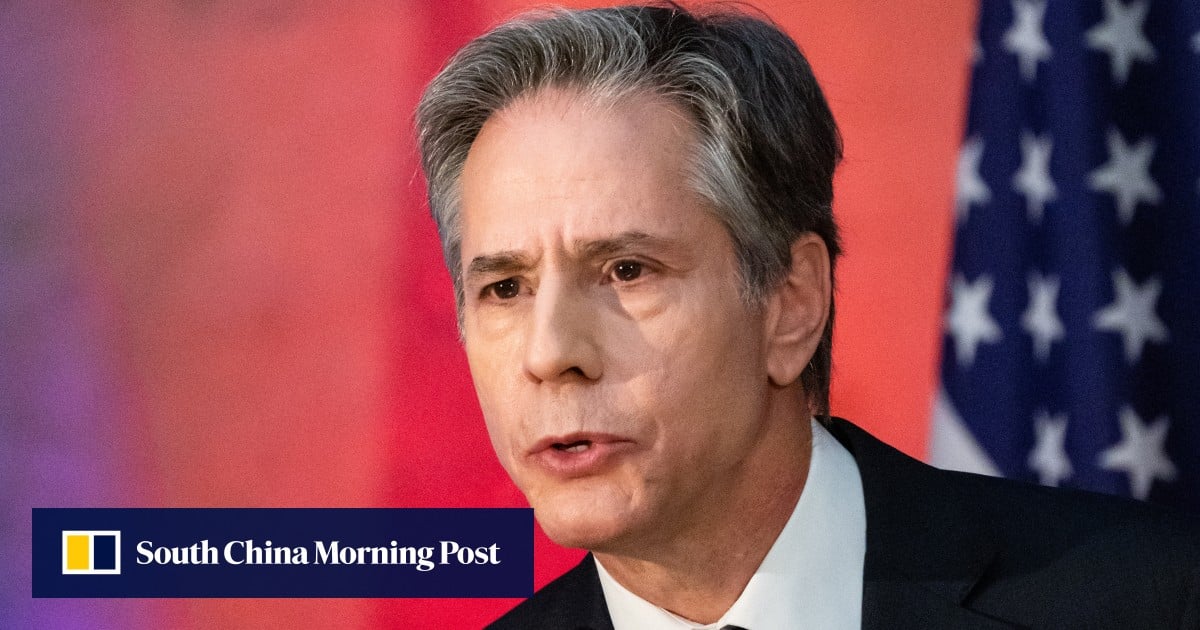America’s top diplomat on Friday said the US would take action if China declined to intervene in the military deployment of North Korea, a hermit state and Beijing ally the US has long accused of playing a destabilising role in East Asia.
US Secretary of State Antony Blinken said he has told his Chinese counterparts that Washington wants Beijing’s help in handling the North Korean “nuclear programme” and denuclearising the Korean peninsula. He said the US would bolster its defence alliances with Japan and South Korea if China refrained from intervening.
Directing his remarks at China during a fireside chat at the Aspen Security Forum in the US state of Colorado, Blinken said: “We believe that you have unique influence and we hope that you’ll use it to get better cooperation from North Korea.
“But if you can’t or if you won’t, then we’re going to have to continue to take steps that aren’t directed at China but that China probably won’t like because it goes to strengthening and shoring up not only our own defences but also those of South Korea and Japan and a deepening of the work that all three of us are doing together.”
Beijing has criticised Washington’s defence alliances in East Asia, viewing them as efforts to monitor or contain China’s military. Seoul and Tokyo resent Pyongyang’s military tests, which sometimes take place near their airspace.
North Korea has conducted “one missile launch after another”, Blinken said. On July 12, Pyongyang carried out a second flight test of its Hwasong-18 intercontinental ballistic missile.
China, North Korea’s Communist neighbour, has offered it fuel and food aid in the past and brokered international dialogue on the country’s militarisation.
Blinken’s comments followed the disappearance on Tuesday of Private Travis King, an American soldier who ran into North Korea during a civilian tour near the border with South Korea.
The secretary of state said he had no updates on King’s whereabouts but that “there are certainly concerns” he might be subjected to torture in North Korea.
The US is now working to anchor a declining Sino-American relationship, Blinken said on Friday. He, US Treasury Secretary Janet Yellen and President Joe Biden’s special climate envoy John Kerry have all visited China within the past two months.
“It was important for us to put some stability back into this relationship, to put a floor under it, to make sure that the competition we’re clearly in does not veer into conflict, and that starts with engagement,” the diplomat said.
Blinken said China could help stem production of the illegal drug fentanyl that reaches the US through Mexico, control global climate change, and allow for the release of American detainees.
“If we weren’t engaged, we would be rightfully tagged with being irresponsible,” he said.
But challenges persist, and Blinken said on Friday the US had started a formal investigation into reports of Chinese hacking into US government emails.



Wasn’t this meeting supposed to be about calming tensions between China and the United States (after months of the Biden administration acting plainly hostile and spreading laughable stories of Chinese spy weather balloons - and then quietly backtracking afterwards) ???
They go to a meeting to calm tensions and then America’s top diplomat gives an ultimatum to his Chinese counterpart saying that unless China intervenes against its oldest ally, the United States will dump even more arms into the hands of its vassals next door?
Smooth diplomacy there america. No wonder everything is going to ratshit.
Tony Blinken is emblematic of the pitiful condition of the State Department today. A large but ineffective diplomatic bureaucracy that has long since stopped believing in the virtues of diplomacy. One that accepts (if not embraces) its inferiority and gladly submits to to the all-powerful Pentagon. And an institution that views granting concessions to those labelled its enemies, or even empathising with them, to be unthinkable.
Eric Hobsbawm described Europe as stumbling into the First World War for the simple reason that the mechanics of great power competition left none able to contemplate backing down from an escalating confrontation (even when it sparked from a relatively banal royal assassination) even when doing so was necessary to prevent an apocalypse. It is people like Blinken who would have us stumble into a nuclear apocalypse.